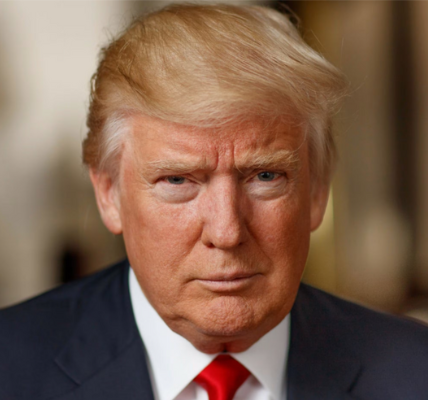
The political landscape shifted dramatically in just one week, leaving both parties grappling with seismic changes and renewed purpose. For Democrats, the moment of reckoning came on Sunday when President Joe Biden finally bowed out of the 2024 race, relinquishing the reins to Vice President Kamala Harris. For a party long weighed down by the shadow of Biden’s age and dwindling approval ratings, the announcement felt like a breath of fresh air—if not a lifeline.
“It’s really palpable,” said Rep. Dean Phillips (D-Minn.), one of the few Democrats who openly voiced concerns about Biden’s candidacy. “He’s heroic for doing this, even if it took longer than expected. It has lifted the angst that was like a pall over our party.”
Relief quickly turned to resolve: Harris is now the presumptive nominee, and the party is rallying around her in an effort to ensure a united front. The stakes couldn’t be higher. With Donald Trump, emboldened after surviving an assassination attempt, running yet again as the Republican nominee, the 2024 race has crystallized into a high-stakes battle over America’s future.
Harris’s ascent to the top of the ticket is both historic and daunting. She’s not just aiming to shatter the glass ceiling as the first woman president; she’s stepping into the role as the party’s emergency candidate, thrust forward in a moment of crisis.
“She’s got to kill it out of the box,” warned Democratic strategist James Carville. “She can’t be defined by Trump before Chicago.”
The challenge is formidable. While Trump enjoys a solid base of unwavering support, Harris must contend with a party still finding its footing after Biden’s late withdrawal. Her limited national campaign experience—marked by an early exit from the 2020 primaries—raises questions about her ability to connect with voters in battleground states.
“She’s a proven leader who has been battle-tested and knows the job,” said former DNC Chair Donna Brazile. “But she has to lean into the fight, not just for her own campaign but for a vision of a country where people who work hard can get ahead.”
Harris’s candidacy comes at a time when abortion rights have emerged as a powerful motivator for voters. Since the overturning of Roe v. Wade, Democrats have scored key victories by campaigning on reproductive rights—a cause Harris is uniquely positioned to champion.
“The fact that she is a candidate able and willing to say the word ‘abortion’ should not be underappreciated,” said Democratic campaign veteran Caitlin Legacki, pointing to Biden’s hesitance to fully embrace the issue.
Still, Harris’s identity as a California liberal of Jamaican and Indian descent poses both opportunities and challenges. While her race and gender can galvanize key constituencies, they also risk being weaponized by Trump’s campaign, which has already signaled its willingness to stoke culture wars.
“Trump will almost certainly invoke Harris’s race and gender,” Brazile said. “But let him pay a price for that—Americans recoil from race baiting and misogyny.”
Trump’s campaign, buoyed by his near-martyrdom, is leaning into a message of strength and order, presenting himself as an American strongman who can restore stability. Harris, meanwhile, must run a campaign that counters Trump’s narrative while appealing to a broad swath of voters, from the party’s progressive base to swing-state moderates.
Her ability to unify the party will be crucial. Michigan Gov. Gretchen Whitmer has already joined Harris’s initial campaign efforts, signaling that the Democratic establishment is lining up behind her. But Harris must also articulate a clear vision for the next four years—something Biden’s campaign often struggled to do.
“Right now, nobody could articulate what the Biden-Harris plan was for the next four years,” Phillips said. “Harris has to offer not just red meat for the base but something medium-well for the middle.”
As Democrats recalibrate, some are drawing comparisons to Gerald Ford’s 1976 campaign—a vice president turned presidential candidate facing a bruising battle for legitimacy. Like Ford, Harris enters the race with the burden of her predecessor’s weaknesses but also with an opportunity to redefine herself and her party.
The next few months will determine whether Harris can transform the Democratic Party’s renewed hope into electoral success. With the party largely unified and energized, she has a chance to break through. But the road to November will be anything but smooth, and the stakes couldn’t be higher.
If Harris can harness the energy of this moment and craft a compelling narrative, she may not only win the presidency but also redefine what the Democratic Party stands for in the post-Biden era.
As Carville put it, “We were in a ditch before. Now, at least, we have a fighting chance.”





